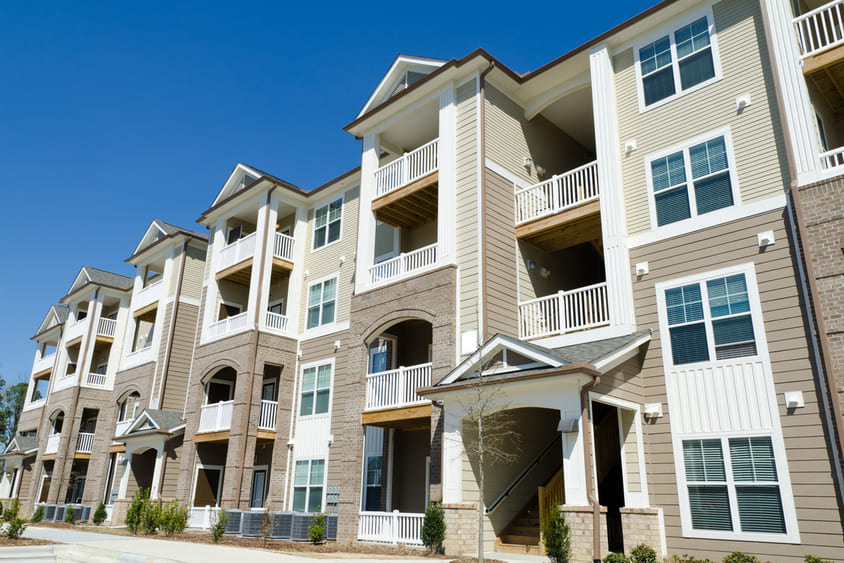The Airbnb rental market has exploded since the company’s inception. Everyday people are taking advantage of this unique way to earn income. The platform allows much greater flexibility to achieve rental income that goes beyond that of an apartment or hotel earnings. This article explores the potential legal challenges when hosting an Airbnb.
If you are thinking of getting into the short-term rental market game, what risks are involved? Are there legal regulations that must be taken into account before starting the hosting adventure? Before you dive into creating your listing as discussed in Airbnb Host Step 1 – Creating your listing, be sure to factor in the legal ramifications for hosting.

Legal issues to take into consideration before hosting Airbnb
Local regulations restricting Airbnb
Before starting your journey into hosting you must consider if any local restrictions exist. The city where the property is located will have its own rules regarding the short-term rental possibilities. These regulations are mostly found in the zoning codes or city ordinances. Restrictions may be so precise that they even vary by the location within the town. As an Airbnb host, it is vital you familiarize yourself with any potential zoning requirements and ensure your property stays within the bounds of any restrictions.
Habitability standards for Airbnb
Most local governments stipulate general standards with respect to the construction, design, and maintenance of buildings. To operate a short-term rental facility, one must comply with health and cleanliness, and safety standards as stipulated by the local authority.
Guests’ safety is of key concern when renting space within your own home. Before opening up your doors, inspect the property with fresh eyes. Ensure that no hazards exist that could harm anyone. It’s important to look for obvious violations along with small things that could injure someone not as familiar with the property. Also, make sure to review your home from the eyes of a child to see what mischief you could get into. This type of inspection allows random issues to become more apparent. Additionally, look around the place with the eyes of an elder. Do tripping hazards exist? If any stairs are present, are they easy to access. All types of difficulties may arise so it is important that you prepare your home to allow visitors to be as safe as possible.
Again, the habitability standards vary by location. Communicate with local authorities to become familiarized with your local standards. These are the legal challenges when hosting an Airbnb.
Business license requirements for Airbnb

Some locations actually require hosts to obtain a business license before starting an Airbnb listing. The type of licensing required can depend on the types of hosting services you offer as well as the duration for which guests book their stays. Some locations consider such distinctions such as brewing coffee, making the beds, or removing the trash from the individual rooms on a daily basis to be more closely linked to activities similar to commercial hotels. In this situation, a business license is more likely to be required. Moreover, if you offer additional activities like sports, special permits may be required. These are just some of the random Airbnb Legal Challenges you may encounter when hosting.
However, in many locations business licensing has yet to become mandatory. As a host, it is your responsibility to check the local rules and comply with them. It is best to check with your local authorities so that your listing stays in good graces.
Landlord – tenant laws pertaining to Airbnb
Because the Airbnb platform specifically targets short-term rentals, many hosts are unaware of the potential dangers in this category. If you offer the property for a long stay, then the landlord- tenant law may apply. This means if the guest stays for more than a certain number of days, he could potentially receive the same rights as a long-term tenant. This matters to you as a host in case of situations turning less favorably. Beware that landlord-tenant laws could provide Airbnb guests with the same rights that exist during an eviction.
The exact number of days for the tenancy law to apply to your property varies from state to state. Make sure to carefully review the real estate laws before allowing any longer-term guests. This particular can get hosts into hot water. It is vital you know your state laws when participating in short-term rentals. These are some of the Legal Challenges when hosting an Airbnb
Are there different Legal Complications according to Property Type?

All types of properties can be found on Airbnb. Guests enjoy the flexibility of renting full houses, individual rooms within condos, and even tents and caves. Anything is possible if you have an accommodation that is pleasing to guests. Single-family homes and condominiums most frequently make up the short-term rental selection. The legal aspects and community rules for short-term renting depends on the type of accommodation as well as the location. These are some of the legal challenges when hosting an Airbnb. One must look into all potential issues.
Airbnb Single family home rentals
Single-family homes as Airbnb rentals offer the most amount of flexibility. These properties are highly sought after as rentals. Furthermore, if you own the property you commonly have only yourself to answer. This last statement holds true only after all the above local law restrictions have been researched. Do not forget that there may be some local laws regarding short-term rentals for your area. Explore these potential restrictions before moving forward with any listing.
If you happen to be renting the home you wish to list for rent, either as a whole property or as part, you must make sure your landlord allows sublets. In this scenario possible restrictions may exist.
Airbnb condominium rentals

Another very popular property type found on the Airbnb platform is the condominium. These types of properties can be great for earning rental income. However, one must beware that condos are governed by the rules and regulations of the condo association. And all condo associations have different rules and regulations owners must abide by. Hence, due diligence should be paid while renting out a property in a condominium. Some condominiums may entirely prevent renting out the property as a short-term rental. While some associations may impose some restrictions in regards to time that must be rented.
Additional areas of concern include the rules and regulations for the tenants of the building. Since the many guests stay only for a short duration, they will not be familiar with the rules and regulations of the condominium. Buildings possess noise standards and expectations about common area usage such as a pool or gym. If you open your condo up to strangers you must ensure they understand and comply with these regulations.
Thus, while renting out a property in a condominium, you should clearly go through the covenants, conditions & restrictions or by-laws of the association.

Airbnb apartment rentals
In most circumstances, high risks exist when hosting guests in an apartment situation. Oftentimes leases have subleasing restrictions written into the signed agreement of the renter and landlord. Let’s think about this for a second.. If your landlord wanted their property to be on Airbnb, wouldn’t they place it there themselves? Some tenants may choose to disregard this rule to make extra cash. Please understand that this can result in the end of your tenancy. This is a major Airbnb legal issue that you may come across in this situation so please be aware.
Why is Airbnb Banned in Some Locations?

As discussed above, restrictions on hosting an Airbnb vary greatly depending on location. Some areas of the world welcome the opportunity of Airbnb as it offers new income sources for residents, This in turn encourages investors to enter the market as well.
Airbnb can change neighborhood dynamics
When you open your doors strangers, tourists from around the world may book your listing. Depending on the popularity of your neighborhood, tourists could visit your location year round. If your neighbors jump on board and become hosts as well, this leads to even more visitors from around the world shifting the neighborhood dynamic. Where one can witness great shifts is in locations with major attractions. The greater the influx of tourists, the more the neighborhood will transform to the times.
Airbnb effect on housing and rent
Airbnb brought a dynamic new way to earn extra money that had never been seen before. These short-term rental opportunities allow the every day person to jump into the real estate game. No longer does one need to be a traditional investor. It is not necessary to own hotels or apartment buildings.
Short-term rental rates are typically much higher than longer-term stays. Consider your rent or mortgage payment per month. Now divide this by 30 days. Compare this amount to what can be found at local hotels in your area. You will see pretty quickly that the short-term rental market is quite advantageous for the host.
Investors quickly realized the short-term rental market was no laughing matter. Those who had previously only focused on hotels and apartment rentals now obtained multiple listings. These investors were able to charge sizable nightly rates. As more and more apartment owners watched this occur, they quickly realized the barriers to entry were not very difficult. Short-term rentals became more prominent in major cities.
This caused many apartments to increase their monthly rates. Landlords viewed their properties as having higher values. Likewise, those selling single-family homes could now value their homes at the rate in which these places were able to be rented. A substantial difference existed between the former long-term rental rates and the new short-term rental rates.

Considering all legal aspects for Airbnb hosting
Many potential legal ramifications may exist when looking into hosting your property on Airbnb. It is vital you review your local laws to determine if any restrictions exist preventing you from hosting your home. Some restrictions may be governed by your entire state while other nuances may exist for your area within your neighborhood. Familiarize yourself with the real estate laws and speak with local officials to ensure your listing is legal.
Also, remember not all properties are created equal. Single-family homes typically have the least amount of restrictions. However, some hosts are able to list their apartments. Each situation is unique so be sure to do your homework before moving onto Airbnb Host Step 1 – Creating your listing. Good luck on your journey! Listed above are just some of the challenges when hosting an Airbnb. Once must be informed about all these issues and always be on the lookout for any new areas that could affect you or your guests.
And remember! The information provided on this website does not, and is not intended to, constitute legal advice; instead, all information, content, and materials available on this site are for general informational purposes only.
